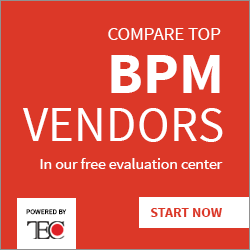FAQ: King of Monsters, Next Phase of IFRS 9 is coming
Blog: Enterprise Decision Management Blog

As if financial institutions didn’t have enough to worry about besides hackers and fraudsters, a new phase of the International Financial Reporting Standard (IFRS) 9 will soon be here to wreak havoc on your books. Called “IFRS 9 Impairment,” this phase is a new standard for how banks and lenders must model expected credit losses in their financial statements. Contrary to popular belief and complaints, IFRS 9 Impairment is not an evil genius super villain, a new strain of impervious disease, or a hostile alien force. But it is a new regulation of which financial managers must be cognizant, and if it is ignored or implemented incorrectly, the results could be more catastrophic than Godzilla weekending in Tokyo. Here are the important FAQ’s that you need to know, including how FICO can help you combat this foe.
Q: What is IFRS 9 Impairment?
A: IFRS 9 was created by the IFRS foundation, which oversees the International Accounting Standards Committee (IASC). Its mission is to develop a common framework of reporting standards that provide transparency across borders. So I’ve probably been using the wrong analogy by referring to them as the “enemy.” Hey, even Godzilla protected Tokyo from the likes of King Kong. IFRS is actually on your side, even if it causes you more work.
Q: Whatever you say. Just please tell me we’re done with the acronyms.
A: Sorry, probably not.
Q: Darn. Moving on, I assume that this is the 9th standard released by the IFRS/IASC?
A: Yes, but they’re not labeled in a user-friendly manner at all. Some of them start with “IFRS,” some of them start with “IAS,” and some of them never see the light of day, causing jumps in the numbering. But you don’t need to worry about that. Think of these standards as the Jurassic Park of international accounting standards—there’s been so many of them that it’s hard to keep track of them all, but you really only need to worry about the original story and the next one that’s coming.
Q: Got it. I think. What about the “Impairment” part?
A: Okay, IFRS 9 actually really began in 2009-10 with new standards for classifying and measuring assets and liabilities in financial statements (this was called the “Classification & Measurement” phase). Then in 2013 they released a model for hedge accounting that included enhanced disclosures about risk management activity (this was called the “Hedge Accounting” phase). The final phase—the Son of Godzilla of this whole thing, if you will—is the “Impairment” phase.
Here’s the deal: after the financial crisis, the IASC believed that one of the problems with the existing standard was that loan losses weren’t recognized until they’d already happened. Therefore, the new impairment model requires a “forward-looking” loss model that begins with the inception of your accounts.
Q: Wait, so we’re going to be expected to predict losses that haven’t even happened? That seems hard.
A: Yup, it certainly can be, unless you reach out to someone who has expertise, someone whose bread-and-butter is model creation, model validation, and strategy development. Someone like…
Q: FICO?
A: Bingo! We’ve got you covered! Our product geniuses have already developed an IFRS 9 Impairment solution that’s fully compatible with the new standard. In fact, if you’re using our Custom Models or Pooled Behavior Models, then chances are we already have some/most of your data in-house and can quickly make the necessary tweaks. But even if you don’t have any existing models from FICO, that’s also no problem-o. We can build it for you faster than Mothra lays eggs.
One other thing: we’ve partnered with a firm called True North Partners LLP, which focuses on regulatory requirement and non-retail lending. Between the two of us, we can offer you a complete suite of comprehensive modeling and advisory services.
Q: OK, good to know. Speaking of fast, when does this new rule go into effect?
A: The adoption deadline isn’t until January 1st, 2018. However, most banks are expected to start running the new impairment model in parallel with the current method by 2017, so you should definitely get cracking sooner rather than later.
Q: Also, I heard that not everybody needs to comply with these new regulations. Is that true?
A: It’s true. Only businesses that are listed in countries that have accepted these regulations need to comply with them. The U.S., notably, has not accepted these regulations. But before you think you’re off the hook because you’re at an American bank and the IFRS 9 monster was last seen off the coast of Mexico, if your bank has international subsidiaries that are listed in countries that have accepted IFRS 9, those subsidiaries WILL need to comply.
Q: Oh. OK, now I’m tired. After I take a nap, is there any place I can go for further information?
As a matter of fact, we just recorded a webinar that you can download here for free that really gets into the nitty-gritty. Check it out, and if you have any further questions, give us a call!
The post FAQ: King of Monsters, Next Phase of IFRS 9 is coming appeared first on FICO.
Leave a Comment
You must be logged in to post a comment.







